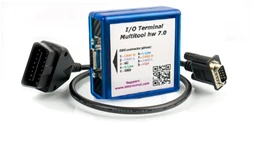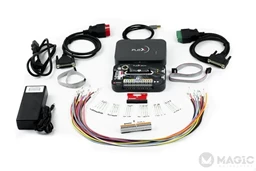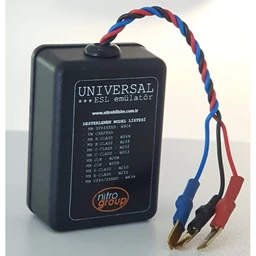In order to reduce oil consumption and prevent harmful gases emitted into nature, some studies have been carried out in the automotive field.
These studies are sometimes additions to the existing system, sometimes radical changes made. One of the radical changes made is the electrification of vehicles.
Internal combustion engine components were removed from the vehicles and replaced with electric motors and batteries. In this way, it is aimed to reduce oil consumption and reduce emission values to 0.
Hydrogen vehicles (fuel cell electric vehicles) are also vehicles produced for this purpose. Basically, these vehicles are also based on electrical energy, but there are differences between them and a fully electric vehicle. In today's article, we will compare these two vehicle types.
What is the working principle of fully electric vehicles?
Fully electric vehicles get their power from the electricity in their batteries. The battery is also charged with the usual charging method.
During the operation of the vehicle, the electricity in the battery is transferred to the engine. Electric motors have two parts, the stator and the rotor.
The stator is fixed, while the rotor is the moving part. By creating an electromagnetic field and moving the rotor, electrical energy is converted into motion.
What is the working principle of the hydrogen vehicle?
These vehicles have fuel tanks as in vehicles with internal combustion engines. The hydrogen filled in the fuel tank is transmitted to the fuel cell.
The hydrogen reaching the fuel cell reacts with the oxygen in the atmosphere. As a result of this reaction, electricity and water vapor are produced. Electricity moves the vehicle by moving the rotor, just like in any other all-electric vehicle.
The water vapor formed due to the reaction is thrown out with the exhaust.
Advantages of electric vehicles
Electric vehicles are increasing day by day, so it is possible to see charging stations in many places. The range of a full tank vehicle can go up to 400 km, which is a really long range.
Traveling with electric vehicles is less costly than traveling with other petrol vehicles. The prices of electric vehicles are more expensive than other vehicles, but they provide a great advantage to the user with the fuel savings they provide.
Parts such as engine parts and batteries in electric vehicles are parts that fail less, so the maintenance costs of electric vehicles are also quite low.
Advantages of hydrogen vehicles (fuel cell electric vehicles);
Hydrogen vehicles (fuel cell electric vehicles), just like gasoline
It fills the fuel tank at stations like vehicles. The filling time is also short as in petrol and diesel vehicles, which is an advantage.
The fuel consumption of these vehicles is very low. Water vapor comes out of the exhaust pipe, so these vehicles do not pollute the nature at all.
These vehicles also have batteries, but this battery is not a big battery and with the regenerative braking system, this battery can be charged throughout your life. Thus, fuel consumption is considerably reduced.
Which is better? Hydrogen or fully electric?
There are two serious differences between hydrogen vehicles and fully electric vehicles. One of them is performance, fully electric vehicles go from 0 to 100 faster than hydrogen vehicles.
In addition, the torque values of fully electric vehicles are higher. Another difference is the fuel filling times.
Since hydrogen vehicles have a fuel filling phase just like gasoline vehicles, they fill fuel in a very short time compared to electric vehicles. It takes approximately 30-40 minutes to charge a fully electric vehicle to 80 percent.
If we talk about the price, hydrogen vehicles have more affordable price tags than full electric vehicles, but the electric fuel cost is more affordable than hydrogen, so the full electric vehicle is more advantageous in long use.







 Cihazı.webp?size=256)









.webp?size=256)

















